I'm kind of a newbie in Go and there is something that confused me recently.
I have a piece of code (simplified version posted below) and I was trying to measure performanc for it. I did this in two ways: 1) a bencmark with testing package 2) manually logging time
Running the benchmark outputs a result
30000 55603 ns/op
which is fine, BUT... When I do the 30k runs of the same function logging the time for each iteration I get an output like this:
test took 0 ns
test took 0 ns
... ~10 records all the same
test took 1000100 ns
test took 0 ns
test took 0 ns
... lots of zeroes again
test took 0 ns
test took 1000000 ns
test took 0 ns
...
Doing the math shows that the average is indeed 55603 ns/op just as the benchmark claims.
Ok, I said, I'm not that good in optimizing performance and not that into all the hardcore compiler stuff, but I guess that might be random garbage collection? So I turned on the gc log, made sure it shows some output, then turned off the gc for good aaand... no garbage collection, but I see the same picture - some iterations take a million times longer(?).
It is 99% that my understanding of all this is wrong somewhere, maybe someone can point me to the right direction or maybe someone knows for sure what the hell is going on? :)
P.S. Also, to me less that a nanosecond (0 ns) is somewhat surprising, that seems too fast, but the program does provide the result of computation, so I don't know what to think anymore. T_T
EDIT 1: Answering Kenny Grant's question: I was using goroutines to implement sort-of generator of values to have laziness, now I removed them and simplified the code. The issue is much less frequent now, but it is still reproducible.
Playground link: https://play.golang.org/p/UQMgtT4Jrf
Interesting thing is that does not happen on playground, but still happens on my machine.
EDIT 2: I'm running Go 1.9 on win7 x64
EDIT 3: Thanks to the responses I now know that this code cannot possible work properly on playground. I will repost the code snippet here so that we don't loose it. :)
type PrefType string
var types []PrefType = []PrefType{
"TYPE1", "TYPE2", "TYPE3", "TYPE4", "TYPE5", "TYPE6",
}
func GetKeys(key string) []string {
var result []string
for _, t := range types {
rr := doCalculations(t)
for _, k := range rr {
result = append(result, key + "." + k)
}
}
return result
}
func doCalculations(prefType PrefType) []string {
return []string{ string(prefType) + "something", string(prefType) + "else" }
}
func test() {
start := time.Now()
keysPrioritized := GetKeys("spec_key")
for _, k := range keysPrioritized {
_ = fmt.Sprint(k)
}
fmt.Printf("test took %v ns\n", time.Since(start).Nanoseconds())
}
func main() {
for i := 0; i < 30000; i++ {
test()
}
}
Here is the output on my machine:
EDIT 4: I have tried the same on my laptop with Ubuntu 17.04, the output is reasonable, no zeroes and millions. Seems like a Windows-specific issue in the compiler/runtime lib. Would be great if someone can verify this on their machine (Win 7/8/10).
